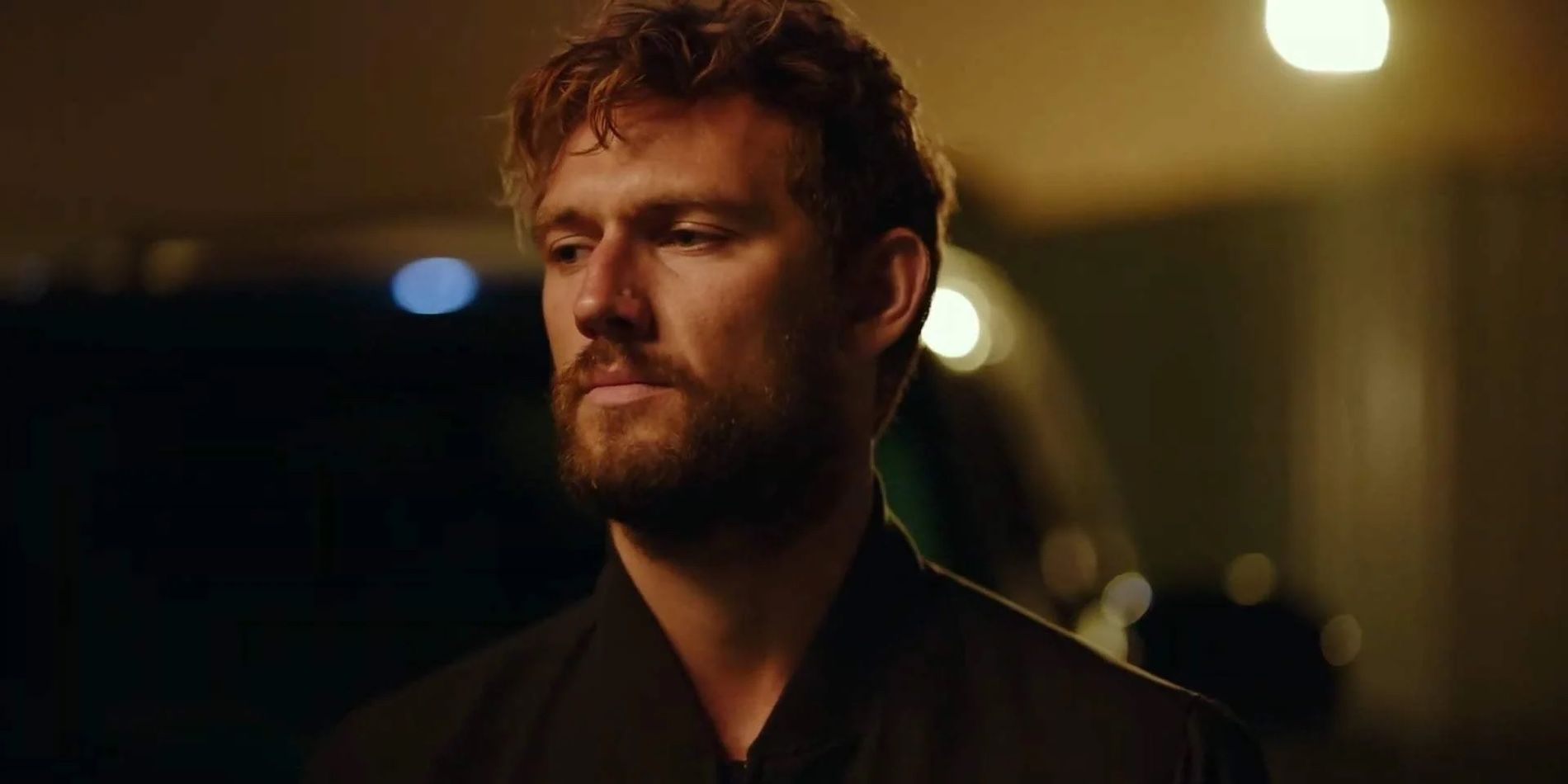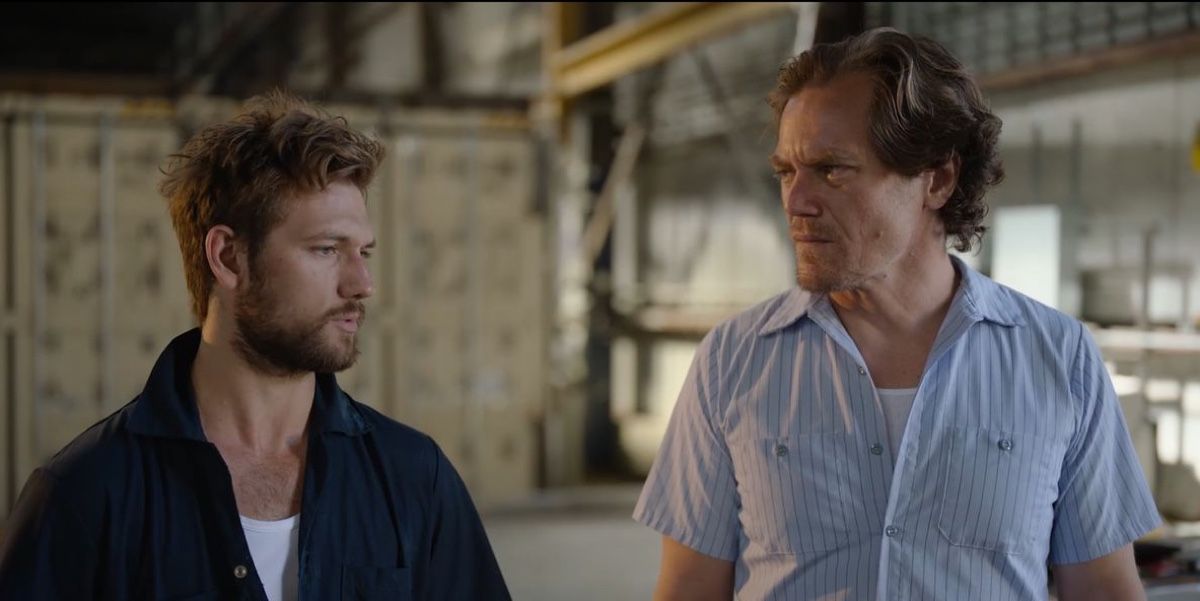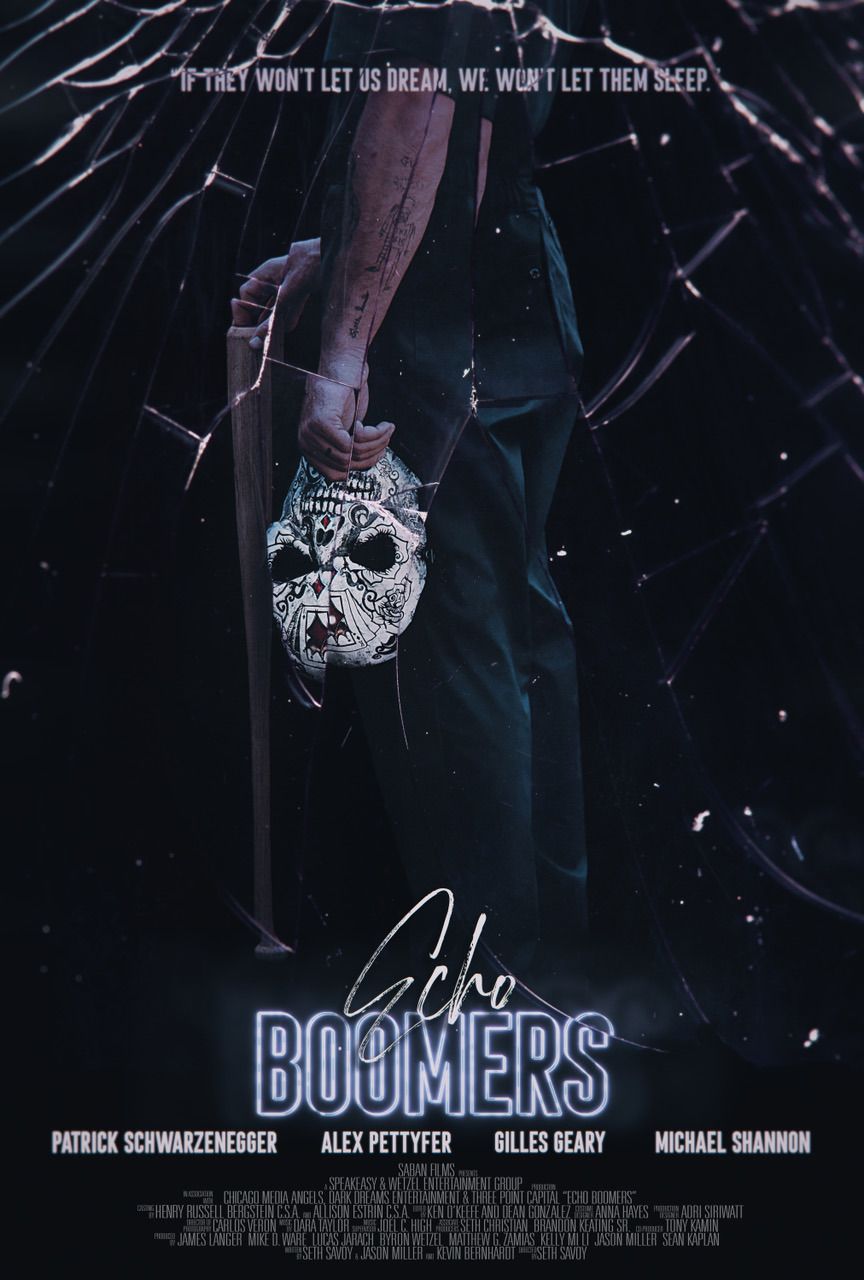Seth Savoy’s directorial debut, the heist drama Echo Boomers, arrives in theaters and on VOD November 13. The loosely true story follows five college graduates who get back at a debt-heavy society by stealing from the wealthy in Chicago.
Alex Pettyfer plays one of the bandits, as well as co-producing the film through Dark Dreams Entertainment. The actor spoke to Screen Rant about the ways the story reflects today’s society, and what he thinks of Savoy’s directing style.
Heist movies never seem to go out of style. What do you think is the intrigue behind them, and why does the genre never go stale?
Alex Pettyfer: I think it promotes this formula of escapism. We have these fantasies of stealing or doing these heists - robbing paintings or banks - because it symbolizes some sort of freedom in the action and result.
I guess as an audience, psychologically, we always are trying to defeat the boundaries that are given to us socially and politically. Yeah, I think it kind of gives us this pseudo reality of freedom.
Echo Boomers has been framed almost as a modern-day Robin Hood tale. If that analogy holds true, who would your character be in the story?
Alex Pettyfer: I don't know, because I don't really see it as a Robin Hood-esque film. The metaphor behind Robin Hood was to steal from the rich to supply the poor, and I feel like in this, it's stealing from the rich to supply for oneself. These selfish acts that we've unfortunately been lured into one from the start of the film by these characters are ultimately trying to promote a message of overcoming the system. Because, as we know, the truth rings quite dear in the fact that student debt is the only debt that we cannot get rid of. That stays with us until we leave this Earth.
These characters get lost in this translation of this message and ultimately end up not really understanding the reason why they ultimately started doing the things that they were doing. I think the characters are depicted almost like antiheroes, and you understand both the wrongful actions that they are doing and the repercussions of those wrongful actions. I think that's what's more intriguing about this story.
[Student debt] is insane. I was saying to another interviewer that when I was doing the research - because we indulge in very meticulous information to give us some laser-focused study on facts to educate ourselves on the world that we're entering - I was baffled at the fact that the times we're living in and the educational system haven't grown.
We have been forced and promoted into this place where we are creating opportunities via Zoom and Skype to educate students, but ultimately what's happening is that these young people are going into the educational system and entering a very new era, which is the entrepreneurial era. People are being beaten out by other with less qualifications and more social skills - and these people have gone to school 3,5 or 7 years. I think the system as a whole needs to change, and we definitely need to see the educational system change in the next 10-15 years.
What did you want to bring to the role of Ellis Beck that wasn't necessarily on the page?
Alex Pettyfer: I wanted to bring an element of chaos, having a character that was so immersed in the rhythm of destruction that it started to overspill into his own life. A message is only as strong as the balance that it promotes, and I think that the balance had been very much tipped into the anarchy that this character had created amongst his group. Ultimately, that was what I wanted to bring to the film and the story.
You got to work alongside one of the best actors out there, Michael Shannon. Is there anything that you've learned from him about his process or about how he works?
Alex Pettyfer: I did another movie with Michael called Elvis & Nixon, where he played Elvis and I played this character called Jerry Schilling, who was the head of the Memphis mafia. So, I spent nearly three months with Michael in New Orleans shooting that movie.
My brother and I started a production company called Dark Dreams Entertainment, and Echo Boomers is actually the first movie that our production company produced. We got approached by the other producers that we collaborated on this film with, and they had already done a development process and had attached Michael to be in the film. When I heard Michael was a part of the movie, obviously, having worked with him - you get the same butterfly feeling that this is one of the greatest actors of our generation. To work with him and be in a creative space with him is so fulfilling and so inspiring.
So, I didn't even read the script. I just messaged back and said, "Our company is in. This is the first movie we're doing, and we couldn't be more blessed to collaborate with Michael." I'm so grateful to have the opportunity to work with him a second time.
Echo Boomers is also based on a true story. Is that correct?
Alex Pettyfer: That's what Seth says, yeah. He says it's loosely based on some truth.
I read a script that Dustin Lance Black, who wrote Milk about Harvey Milk, wrote a movie called The Barefoot Bandit. A young boy would scout out these houses in these very wealthy neighborhoods, live in them and use their facilities, and would find cash in their houses. A lot of the homes that he lived in were holiday homes, so people didn't come back for months on end. He learned how to fly a plane and fly to the Bahamas, and he found vacant residencies there. He was called the Barefoot Bandit because he never wore shoes.
There was an element of Echo Boomers that reminded me of The Barefoot Bandit, which was a film that I really wanted to do. That's why I was really enthralled by wanting to make this film. Not only that, but because it's a fun film. It's a fun film with a with a subtle message. I think when we're creating art, there has to be some sort of incentive for the higher purpose of the art that we're doing.
I also love the title of this film. Just from its title, it has something to say about generational values and differences in experience. How does that notion play into the film and your character in particular?
Alex Pettyfer: We as a society, as a unity around the world of just being human, are going through some incredibly changing times that are quite evidently serious. I don't know if you have had the opportunity to watch David Attenborough's documentary on Netflix, where he talks about generations: past, present, and future. And we have to understand, generationally, that life is ever-evolving and changing. We need to adapt with that, and that's a hard pill to swallow.
For me, what I realized is that, for the generations that have come before us and the generations that will come after us, this is a very important time in history. We, for the first time, are controlling our own destiny through the power of social media or the power of the internet and connection and information. But also with sustainability and the way that we have created this Animal Farm, in the sense of providing a quantity of opportunities for us to survive - us, now, in this moment. But as Mother Earth evolves, it always sustains and revitalizes. Humans come and go, but the most important is for us to create and set up for the generations after us.
In Echo Boomers, there's this real explicit behavior of selfishness. With the system being maybe potentially wrong, in the sense that paying back student debt is near impossible for a lot of people and the educational system is set up [poorly], they weren't embracing the growth or the message of positivity and equality. They were promoting this difficult situation with wrongful action. I think if anyone was to take away anything from the film, it's to see how these characters ultimately pick themselves apart fighting for something while their actions won't promote change.
That's my view on Echo Boomers. We don't necessarily need to make movies and see the outcome in the way that we think outcomes should play out. Sometimes it's good to show movies where the outcome isn't positive, and maybe people can take that as an insight into what they would do if they were in that position. Not only in the scenario that we're talking about, but in the largest scenario and storyline, which is people coming into a time where they're not getting the opportunities due to their qualifications.
We're also in a time where we've got COVID and jobs are sparse. What do you do out of that scenario? You come together. It wasn't a situation where COVID only happened in a certain part of the world and we viewed it from arm's length. No, for the first time in this generation - and the generation before and the generation that will come after us - we've all been affected. And we've seen that the world has had to come together and unite, or we will have to unite in the world as we proceed forward. I think that is important, not only on a larger scale, but also on a smaller scale. These boomers or this millennial generation have to come together and work together to sustain and to find a balance, which ultimately will help a bigger cause.
This film is Seth Savoy's his feature film directorial debut. Can you talk to me a little bit about his style and his perspective behind the camera, and the collaboration process of working with him?
Alex Pettyfer: It's interesting, you talk about style. But ultimately, every frame that you've ever seen in film has been done. You're just seeing it in a different formula or format. So, people will get given the exact same recipe of a soup - 100 people, shall we say - and 100 people will make a completely different-tasting soup, even though they all used the same ingredients.
What I find fascinating is the perspective of Seth, and his vision and passion for the film. That's what I find enthralling; to be on set and watch a man be so complete and one with the material, almost like he's in a meditative state. That energy surpasses him and is bled onto everyone else, and that's a really inspiring position to be in as an actor when the captain of the ship, being the director, has that energy. Because a lot of people are put in these really fortunate positions and are not necessarily the most appreciative.



